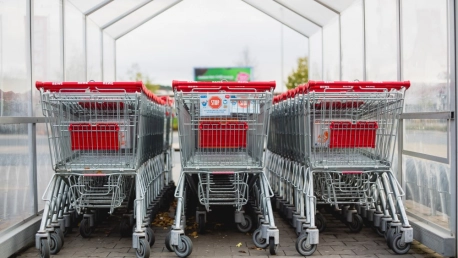It comes as no surprise that there are concerns regarding the global economy after the pandemic, its subsequent continual lockdowns, and Russia’s invasion of Ukraine. Rising inflation and policy uncertainty is also plaguing the market, in addition to pre-existing problems like rising inequality. As people everywhere are struggling to return to normal and build a better and safer future, financial worries are spreading around the world, threatening the global economy even more. While many experts remain optimistic, others are now worried that returning to normal might prove to be harder than initially anticipated.
According to the World Trade Organization (WTO), Russia’s war in Ukraine will damage world trade growth in 2022, and drag down global GDP. The WTO warns that Russia’s invasion disrupted existing possibilities for world trade as it forced the global economy to split into rival blocs over the conflict. “In a crisis, more trade is needed to ensure stable, equitable access to necessities. Restricting trade will threaten the well-being of families and businesses and make more fraught the task of building a durable economic recovery from COVID-19,” WTO director-general Ngozi Okonjo-Iweala added.
Strengthening the economy
According to Mastercard SpendingPulse—which measures US in-store and online retail sales across all forms of payment—US retail sales remain strong in March, despite growing concerns. Total retail sales have increased 8.4% year-over-year in March, and are also up 18% when compared to pre-pandemic levels, not adjusted for inflation purposes.
Senior advisor for Mastercard Steve Sadove stated that retail sales are increasing and stabilizing, due to Americans resuming pre-pandemic shopping habits, like travel, live entertainment, indoor dining, and other physical activities. “After nearly two years of cautious optimism around the broader reopening, it’s a healthy sign that consumers are returning to a balanced level of spending across retail sectors and services,” he added. Indeed, with travel restrictions eased, airline spending year-over-year is up 44.8%, along with restaurants (19.1%) and lodging (46.4%) that has also experienced growth. Moreover, sales are also increasing in sectors like luxury (27.1%), apparel (16.0%), and department stores (14.0%).
Growing concerns in retail
Although in-store sales continued to grow, e-commerce declined year-over-year in March. Even so, online sales are up 83.7% when compared to 2019, while in-store sales are up 9.4% compared to pre-pandemic data. Giants like Amazon are continuing to reap the benefits of e-commerce, considering the fact that 60% of all online retail purchases in the US were made on Amazon in 2021, according to PYMNTS information. Amazon is now tightening its grip on online sales as it continues to grow and evolve into an even larger company.
Unlike Amazon, other US retailers are now facing enormous pressures in dealing with the remnants of the COVID-19 pandemic, in addition to other issues now affecting the market. Kmart, once a giant retailer that ruled the sector, now nears its extinction as it’s scheduling a new closure in Avenel, New Jersey. When the New Jersey store shuts its doors, the once giant retailer that used to own over 2,000 US stores, will be down to only three Kmarts in the continental US. Furthermore, other Sears and Kmart stores are also scheduled to close in the coming months, making Transformco—the owner of both brands—a new victim.
Overcoming new challenges in retail
As people in the US and abroad are struggling to return to normal wants and needs, the retail industry is also expected to rebound. However, Russia’s war in Ukraine and other numerous economic challenges are now menacing this positive scenario—and concerns seem to be rising as a consequence. Even so, retail sales remain strong despite multiple issues now affecting the industry, and giant retailers like Amazon, Walmart and Target continue to dominate the market. There are also those experiencing difficult times, like Kmart—once a giant with now only three stores.









